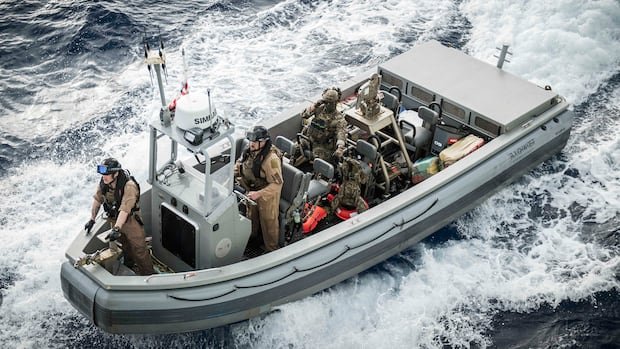Canada’s Department of National Defence has affirmed its commitment to the ongoing joint operation with the U.S. Coast Guard aimed at intercepting drug smugglers in the Caribbean, despite recent deadly U.S. airstrikes in the region. Operation Caribbe, which has been active since 2006, involves collaboration between the Royal Canadian Navy, Royal Canadian Air Force, and the U.S. Coast Guard to identify and halt suspected drug-carrying vessels in the Caribbean, with detainees being transferred to the U.S. for legal action.
In contrast, the U.S. Air Force has resorted to a different strategy, conducting airstrikes on four suspected drug boats resulting in the deaths of 21 individuals. Canadian authorities have distanced themselves from these actions, emphasizing that they are not associated with Canadian military or intelligence operations in the area.
Operation Caribbe serves as Canada’s contribution to Campaign Martillo, a multinational initiative involving 14 nations across the Americas and Europe. Tim Addison, the director of naval affairs for the Naval Association of Canada (NAC), expressed concerns about the recent U.S. strikes and urged for clarity on the legality and justification behind them. The NAC, representing retired and active naval personnel advocating for a robust navy, highlighted the significance of abiding by international laws governing armed conflicts.
As discussions continue between Canada and the U.S. regarding a new trade agreement, Addison underscored the need for transparency and dialogue with the United States to address the implications of the airstrikes on ongoing operations. The situation has placed the Royal Canadian Navy in a challenging position in the Caribbean.
Defense studies professor Eric Ouellet, from Canadian Forces College and the Royal Military College of Canada, echoed concerns about the recent strikes potentially affecting Canadian deployments in the region. Emphasizing the importance of avoiding involvement near Venezuela to prevent unintended consequences, Ouellet stressed the need for cautious intelligence sharing to uphold legal standards.
While acknowledging the complexities of combating drug-related activities in the Caribbean, Ouellet suggested that focusing on other security threats like arms smuggling around Haiti could be a viable alternative. He highlighted the value of maintaining Operation Caribbe as a collaborative effort between Canada and the U.S., emphasizing the importance of finding practical solutions amidst the current challenges.
The recent U.S. airstrikes, justified by officials as targeting designated terrorist groups involved in drug trafficking, have escalated tensions between the U.S. and Venezuela. The U.S. administration has accused Venezuela, particularly President Nicolas Maduro, of facilitating drug trafficking activities, leading to the recent military actions in the region.
Operation Caribbe, which has resulted in the interception of 123 metric tonnes of cocaine since its inception in 2006, continues to be a critical endeavor in combating drug smuggling in the Caribbean.


